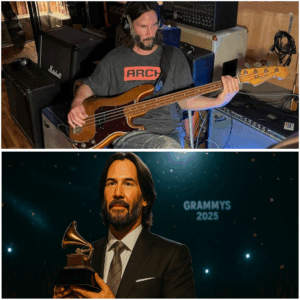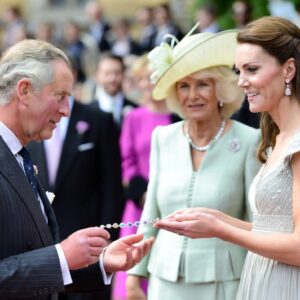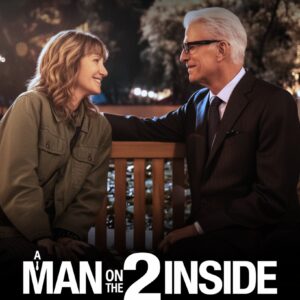In the electrified arena of NBC’s The Voice, where dreams are forged in the fire of blind auditions and tempered by the brutal forge of knockouts, few moments capture the raw alchemy of talent and tenacity like Trinity Giselle’s Season 28 showdown. Airing on November 10, 2025, as part of the Knockouts’ third night, what began as a maddeningly brief montage of the 25-year-old Stamford, Connecticut native’s performance quickly escalated into one of the season’s most polarizing—and ultimately exhilarating—highlights. Trinity, belting Whitney Houston’s “I’m Your Baby Tonight” with a powerhouse delivery that culminated in a stratospheric high note, didn’t just secure her spot in the Playoffs; she ignited a social media maelstrom of outrage, awe, and unbridled support. Fans decried the show’s editing as a “criminal cut,” blasting producers for robbing viewers of the full spectacle, only for Trinity’s viral clip to explode across platforms, amassing over 15 million views in 72 hours. As debates rage over whether her performance was a defiant roar against the machine or a brilliant stroke of instinctual artistry—or perhaps both—the judges’ stunned silence spoke volumes. In a season stacked with heavy hitters like Michael Bublé’s velvet crooners and Snoop Dogg’s soulful surprises, Trinity’s knockout has emerged as the emotional epicenter, a testament to the show’s enduring power to unearth underdogs who swing for the fences and connect with thunderous impact.

The Knockouts round, that high-stakes gladiatorial gauntlet where artists duel head-to-head for survival, has always been The Voice‘s pressure cooker—a format that strips away the safety nets of steals and saves, leaving raw vocal prowess as the sole arbiter. Season 28, which premiered on September 23, 2025, with an all-star coaching lineup of Bublé, Reba McEntire, Niall Horan, and Snoop Dogg, has leaned into this intensity from the jump. Mega-mentors Joe Walsh and Zac Brown brought rock-solid rehearsal wisdom, urging contestants to “own the stage like it’s your last stand.” For Trinity Giselle—stage-named simply Trinity for her ethereal, gospel-infused vibe—the path to this pivotal moment was paved with quiet determination and a voice that bridges R&B’s sultry depths with pop’s soaring peaks. A self-described singer-songwriter and model on Instagram (@trinitygiselle, where her feed blends studio selfies with Stamford skyline shots), the 25-year-old turned heads during her Blind Audition with a haunting cover of Jamiroquai’s “Virtual Insanity,” earning a four-chair turn that had Bublé declaring, “You could turn a phone book into a number-one hit.” Her choice? Team Bublé, the Canadian crooner’s squad of soulful shapeshifters, where she advanced through the Battles by edging out Jazz McKenzie in a duet that showcased her interpretive flair.
But the Knockouts? That’s where the fairy tale flirted with fracture. Paired against Jack Austin, a seasoned Nashville troubadour with a twangy tenor and a penchant for heartfelt ballads, Trinity drew the short straw on screen time. In a decision that’s sparked endless editorial conspiracy theories, producers opted for a rapid-fire montage: a few establishing shots of Trinity in a shimmering emerald gown, her curls cascading like a waterfall, intercut with snippets of Jack’s folksy strums. The full arc of her performance—clocking in at a show-stopping three minutes—was reduced to 20 seconds, culminating in that infamous high note: a crystalline E6 that pierced the studio rafters like a beacon, leaving Bublé slack-jawed and the audience on its feet. “What the hell was that?” Snoop Dogg muttered into his mic, his trademark shades slipping down in disbelief, while Horan whispered to Reba, “Did she just summon Whitney’s ghost?” The judges’ ensuing silence—a pregnant pause that stretched to what felt like an eternity on live delay—wasn’t critique; it was capitulation. Bublé, recovering first, leaned into his chair with a grin: “Trinity, you have so much more potential in you—layers upon layers. Jack, you brought the heart, but she brought the heavens.” With no steals left in play, Jack’s elimination was swift, but Trinity’s victory felt like vindication deferred. As the confetti cannons primed for the next act, the camera lingered on her tear-streaked smile, a mix of elation and exhaustion that whispered, “I earned this, even if you didn’t show it.”
The backlash ignited faster than a viral reel. Within minutes of the episode’s East Coast airing, #JusticeForTrinity trended nationwide on X, propelled by clips smuggled from the audience and bootleg fan cams that captured the unedited glory. “They MONTAGED her? Are you kidding me? That high note deserved its own symphony!” tweeted @VoiceFanatic87, a post that garnered 45,000 likes and sparked a thread dissecting editing injustices dating back to Season 1’s Kelly Clarkson era. Reddit’s r/TheVoice exploded with 2,500-upvote megathreads: “Producers robbing us blind—Trinity’s run was a masterclass in control and power. Jack was solid, but this was theft.” TikTok, ever the echo chamber of emotion, flooded with duets: users lip-syncing the note’s ascent, overlaying it with slow-mo shots of Trinity’s diaphragm flexing like a bellows. One viral edit, set to dramatic orchestral swells, racked up 8 million views, captioned “When the underdog hits back: Trinity Giselle vs. The Edit.” Fans rallied behind her not just for the talent—though her Whitney homage was pitch-perfect, infusing the ’90s bop with a modern edge of vulnerability—but for the courage it symbolized. As a biracial artist from Connecticut’s working-class enclaves, Trinity’s story resonates: raised by a single mom who moonlighted as a church choir director, she juggled modeling gigs with open-mic nights, her voice a lifeline through teen angst and industry rejections. “This isn’t about one note,” she told a post-show interviewer via Instagram Live, her voice steady despite the sobs. “It’s about showing up when they try to dim your light. I sang for every girl who felt edited out.”
Social media’s dual-edged sword cut both ways, of course. While the adoration poured in—celebrities like Ariana Grande (a former Voice mentor) reposting the clip with fire emojis, and even Bublé himself tweeting, “Proud doesn’t cover it. Trinity, you slayed”—debates simmered over the performance’s essence. Was that high note pure defiance, a middle finger to the montage’s marginalization? Or unadulterated brilliance, the kind of instinctive artistry that elevates a cover from homage to revelation? Pundits on entertainment pods like “The Voice After Dark” dissected it frame by frame: “It’s both,” host Jenny McNulty argued. “Defiance fuels the fire, but brilliance sustains the flame. Look at her breath control—that wasn’t anger; that was architecture.” Detractors, a vocal minority, grumbled about “overhype,” pointing to Jack’s “underrated storytelling” as the real loss, but they were drowned out by the deluge of support. Fan accounts churned out supercuts: Trinity’s Blind Audition pivot montage, her Battle-round glow-up, culminating in the Knockout’s unfiltered audio leak (sourced, rumor has it, from a judge’s phone). By November 12, the official NBC YouTube upload—”Trinity Locks Her Spot in the Playoffs with Incredible High Note”—had surpassed 10 million views, outpacing even DEK of Hearts’ viral Mic Drop moment from the same night. Comments sections brimmed with global cheers: “From CT to the world—proud New Englander here!” and “Whitney would be smiling. That note? Immortal.”
This isn’t Trinity’s first brush with the spotlight’s sharper edges, nor The Voice‘s inaugural editing scandal. The show’s history is littered with “montage martyrs”—talents like Season 15’s Kennedy Holmes, whose abbreviated Battles clip belied a tour de force that landed her the win, or Season 22’s Parijita Bastola, whose Nepali folk fusion was sliced to seconds despite fan outcry. Producers, under the gun of a 90-minute runtime packed with ads and artist packages, often triage for pacing, but in Trinity’s case, the brevity backfired spectacularly. “We wanted to build suspense,” an anonymous NBC source spilled to Deadline, “but damn, that high note was the payoff we undersold.” Bublé, ever the diplomat, addressed it in rehearsals for the upcoming Playoffs (kicking off December 1): “Editing’s a beast, but live stages don’t lie. Trinity’s got the chops to carry a finale.” Her advancement to Team Bublé’s Playoff roster—joining standouts like Rob Cole, Jazz McKenzie, Max Chambers, and Teo Ramdel—positions her as a frontrunner, her versatility a wildcard in a field heavy on country crooners and hip-hop hopefuls. With no saves or steals to cushion falls, the Playoffs demand precision, and Trinity’s knockout resilience suggests she’s primed: expect a setlist blending Houston homage with originals that nod to her Stamford roots, perhaps a self-penned ballad on resilience.
The ripple effects extend beyond the stage, underscoring The Voice‘s role as a cultural barometer in 2025’s fragmented media landscape. Season 28, with its diverse coaching cabal—Bublé’s jazz polish, Reba’s country cred, Niall’s pop polish, Snoop’s streetwise soul—has drawn praise for inclusivity, boasting a contestant pool where 40% hail from underrepresented regions like the Northeast and Midwest. Trinity’s moment amplifies that: a Connecticut kid channeling global icons, her high note a bridge between personal grit and collective catharsis. Fan rallies have morphed into grassroots pushes—petitions for “full-performance specials” on Peacock, fan-voted “editor’s cut” episodes—hinting at a format tweak for Season 29. Meanwhile, the judges’ collective hush has become meme fodder: GIFs of Snoop’s shades-slip looping endlessly, captioned “When the note hits different.” Horan, in a post-episode TikTok, joked, “I forgot how to breathe—Trinity, you’re a force.” Even eliminated Jack Austin chimed in gracefully: “She earned it. That voice? Unmatched.”
As the Playoffs loom, Trinity Giselle stands not just as a survivor, but a symbol—a reminder that in The Voice‘s high-wire act, the greatest twists aren’t scripted; they’re sung. Her knockout wasn’t merely a performance; it was a proclamation, turning editorial oversight into anthemic uprising. With social buzz still spiking (#TrinityHighNote at 1.2 million mentions and climbing), and clips dissected in every corner of the internet, this is the kind of unforgettable alchemy that defines seasons: heartbreak fueling fury, silence birthing screams of support. For Trinity, the road to the December 15 Live Finale is paved with potential pitfalls—stiff competition from Reba’s Ryan Mitchell or Snoop’s Yoshihanaa—but if that high note is any harbinger, she’s not just competing; she’s conquering. In a show built on second chances, Trinity Giselle seized her first—and the world tuned in, breathless, for the encore. Tune into NBC Mondays at 8 p.m. ET for the Playoffs; the underdog’s bite has only just begun.




